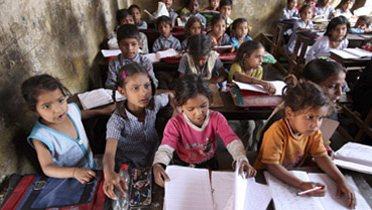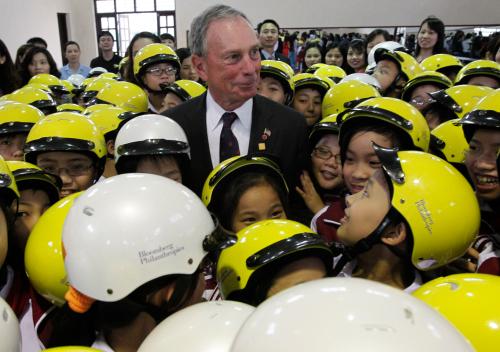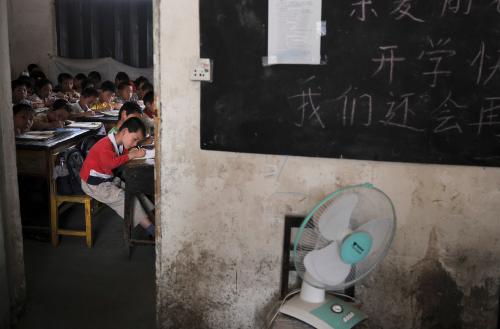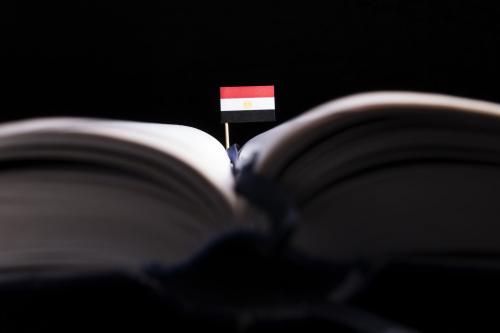

LIVE
Should the United States change its policies around Taiwan?12:00 pm EDT - 1:30 pm EDT
Past Event
On April 30, the Center for Universal Education hosted a lunch time discussion with Dr. John Mugo, the Kenya country coordinator for Uwezo. Uwezo is an initiative which, through large-scale household learning assessments, leverages citizen action and accountability to improve literacy and numeracy in Kenya, Tanzania and Uganda. Nonresident Senior Fellow Kevin Watkins opened the discussion by noting Uwezo’s success in turning the spotlight on the global learning deficit.
Dr. Mugo’s presentation on Uwezo highlighted the need to move beyond a narrow focus on enrollment to an emphasis on ensuring learning outcomes for all children and youth. Uwezo has set a goal of contributing to a 10 percent increase in literacy and numeracy levels among children aged 6-16 in Tanzania, Uganda and Kenya between 2009 and 2013. The annual assessment is conducted in every district in Kenya on a random sample of children and on a sample of similar scale in Tanzania and Uganda. Because they are conducted at the household level, the Uwezo assessments capture not only children attending school but also children who are out of school. Additionally, surveys of local schools allow for a deeper understanding of the connection between children’s learning outcomes and their schooling opportunities. The results of the assessment are then used at both the district and national levels to galvanize citizen action and influence policy toward improving the quality of education. Dr. Mugo discussed the powerful influence Uwezo has had on making the poor quality of education a national headline. They have used innovative approaches to communications and advocacy including radio call-in programs, stickers on public buses, and SMS messages to engage individuals in the discussion around improving learning outcomes.
The presentation was followed by a question-and-answer session with participants who represented governments, multilateral organization, foundations, and civil society practitioners and advocacy groups. The discussion focused on the details of the assessment, impact at the village, district and national levels, interactions with government officials, and the role the international community can play to amplify the findings at a global level. In particular, Uwezo has made all of its survey data openly available for analysis by external individuals and organizations on its website.
Related Content

Justin van Fleet, Anda Adams
June 14, 2012

Justin van Fleet
June 19, 2012

Justin van Fleet
June 6, 2012

Elyse Painter, Emily Gustafsson-Wright
January 5, 2024
2023
Online only
9:00 am - 10:00 am EST

Nariman Moustafa
October 20, 2023